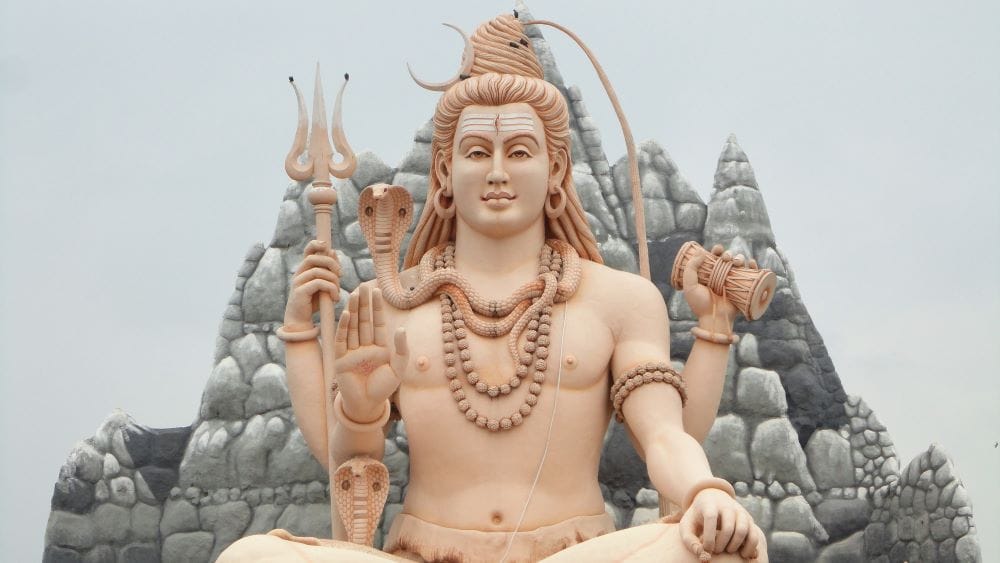Every year, Hindus celebrate the festival of Mahashivratri with great devotion and enthusiasm. It is one of the most important Hindu festivals because it celebrates the triumph of good over evil and Lord Shiva’s blessings and grace on his devotees. Fasting, prayer, and all-night vigils at Shiva temples mark this annual festival, which takes place on the 13th or 14th night of the Hindu month of Phalguna (February-March). We will discuss the significance of Mahashivratri, its celebration, and its rituals in greater detail in this blog. So, continue reading if you want to learn more about this ancient Hindu festival!
Story Behind the Celebration
Mahashivratri is a Hindu festival whose origins can be traced back to mythology. Legends in Hinduism say that Lord Shiva married the goddess Parvati on this day, and the festival is held to celebrate this union.
Another well-known legend states that on the night of Mahashivratri, Lord Shiva drank the poison produced by the gods and demons churning the ocean to save the world. It is said that Lord Shiva was given the name “Neelkanth,” which translates to “the blue-throated one,” as a result of this act, which saved the world from destruction.

A third popular myth states that Lord Shiva performed the “Tandava Nritya,” a dance of destruction, on Mahashivratri. It is said that Lord Shiva destroyed the universe during this dance and then immediately created a new universe. This is interpreted as a representation of the cyclical nature of existence and the universe’s ongoing cycle of creation and destruction.
The celebration of Mahashivratri is widely regarded as a time for self-reflection, meditation, and spiritual development, despite the particular legends that are associated with it. It is also a time to celebrate Lord Shiva’s victory over darkness and evil. Mahashivratri remains a deeply meaningful and cherished occasion for Hindus all over the world, regardless of whether it is observed as a spiritual or religious festival.
Celebration of the Festival

Devotees observe a number of rituals and customs during the Mahashivratri festival with great devotion and fervor.
- Time and Date: On the 13th or 14th night of the Hindu month of Phalguna, which falls between February and March, the festival is held each year.
- Following the Fast: On the day of Mahashivratri, many devotees observe a fast as a sign of their devotion and to seek Lord Shiva’s blessings.
- Shiva Temple Nightly Vigils: Devotees go to Shiva temples and hold vigils that last all night, praying and doing rituals in the presence of Lord Shiva.
- Lord Shiva’s offerings: As a sign of their devotion and in an effort to obtain Lord Shiva’s blessings, devotees offer milk, fruits, flowers, and incense.
- Spirituality’s Importance: For Hindus, the festival has a significant spiritual significance and is believed to bring peace, prosperity, and luck to those who observe it with sincerity and devotion.
Devotees observe Mahashivratri with great devotion and enthusiasm, hoping for Lord Shiva’s blessings, as it is a significant date on the Hindu calendar.
Significance of the Festival
For Hindus, the celebration of Mahashivratri serves as a reminder of the triumph of good over evil. The festival is regarded as one of the most significant in Hinduism and serves as a symbol for the grace and blessings that Lord Shiva bestows upon his devotees.

- Good triumphs over Evil: The festival serves as a reminder that good will always prevail over evil in the end and represents the triumph of good over evil.
- Grace and Blessings from Lord Shiva: On Mahashivratri, it is believed that Lord Shiva is particularly benevolent and merciful, and that those who seek his divine protection receive blessings and grace.
- Spirituality’s Importance: The festival is regarded as an auspicious time for spiritual practices like meditation, yoga, and mantra chanting because of its significant spiritual significance.
The blessings and grace that Lord Shiva bestows upon his devotees, as well as its spiritual significance for Hindus, are what give Mahashivratri its significance as a symbol of good triumphing over evil.
Conclusion
Mahashivratri is a significant Hindu festival with profound significance for Hindus worldwide. It symbolizes the blessings and grace that Lord Shiva bestows upon his devotees and celebrates the triumph of good over evil. Hindus hold the festival, which is observed with fasting, prayer, and all-night vigils at Shiva temples, to a high spiritual standard. Hindus are reminded of the power of devotion and prayer, the superiority of good over evil, and the benevolence of Lord Shiva during the celebration of Mahashivratri.
FAQs
1. When is the celebration of Mahashivratri?
A. On the 13th or 14th night of the Hindu month of Phalguna (February-March), Mahashivratri is celebrated annually.
2. What significance does Mahashivratri hold?
A. One of the most significant Hindu festivals, Mahashivratri represents the triumph of good over evil. On Mahashivratri, it is believed that Lord Shiva is particularly benevolent and merciful, and that those who seek his divine protection receive blessings and grace.
3. What rituals and practices are associated with Mahashivratri?
A. Fasting, prayer, all-night vigils at Shiva temples, and offerings of milk, fruits, flowers, and incense to Lord Shiva are all part of the Mahashivratri customs and rituals.
4. Why is Mahashivratri celebrated as a day of prosperity?
A. Mahashivratri is celebrated as a day of prosperity by Hindus because it represents the triumph of good over evil and holds significant spiritual significance. On this particular day, it is believed that Lord Shiva is especially kind and generous, and that those who seek his divine protection receive blessings and grace.
5. Is Lord Shiva real?
A. In Hinduism, Lord Shiva is regarded as the god of destruction, fertility, and regeneration. He is one of the most significant gods. In Hindu tradition, he is regarded as the ultimate consciousness and is revered as the ultimate reality.







